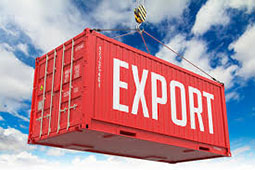
Iranian Province Exports $26 mln Non-Oil Goods in 3 Months

Rebar, air-conditioning engines, ferrosilicon, raisins, vaseline, pickles, dairy products, earthenware and cookware, make up the main commodities exported from the mid-Western Iranian province of Hamedan in the first quarter of the local fiscal.
Turkey, Iraq, Pakistan, China, Afghanistan, Bulgaria, Ukraine, India, the UAE, Armenia and the Netherlands were the main export destinations.
The province’s imports in the same period amounted to 2,040 tons worth $201,000. The figure indicates a 41% and 55% increase in volume and value, respectively compared with the similar period of last year.
Germany, Austria and Spain were the main exporters to the province during the period, shipping products including, knitted fabric, potato seeds, polypropylene, textile products, auto parts, graphite electrodes used in furnaces and milling machine to Iran.
Iranian officials started planning for policies to counter the US possible sanctions a year before Donald Trump entered into office in early 2017. The policies are now proving effective as economic indexes are indicating inefficacy of the US pressures.
Earlier in July, Iranian Industry Minister Reza Rahmani said that despite US efforts to cripple Tehran’s economy, year-on-year comparison shows that the country’s domestic production has increased in the first quarter of the local calendar year (March 21-June 21).
“US sanctions were imposed to hamper production in Iran, however, we are proud to announce that after 14 months of sanctions the area has grown one percent in the first three months of the present Iranian year (started on March 21) in comparison with the corresponding period in last year," Rahmani said in Iran’s Northeastern province of North Khorasan.
"We did not let production decrease and that is a victory despite the difficulties we had under sanctions," he added.
The minister underlined that the government seeks to increase exports under the current conditions and called for providing the ground for investors.



Trump weighs using $2 billion in CHIPS Act funding for critical minerals

Codelco cuts 2025 copper forecast after El Teniente mine collapse

Electra converts debt, launches $30M raise to jumpstart stalled cobalt refinery

Barrick’s Reko Diq in line for $410M ADB backing

Abcourt readies Sleeping Giant mill to pour first gold since 2014

Nevada army depot to serve as base for first US strategic minerals stockpile

SQM boosts lithium supply plans as prices flick higher

Viridis unveils 200Mt initial reserve for Brazil rare earth project

Tailings could meet much of US critical mineral demand – study

Kyrgyzstan kicks off underground gold mining at Kumtor

Kyrgyzstan kicks off underground gold mining at Kumtor

KoBold Metals granted lithium exploration rights in Congo

Freeport Indonesia to wrap up Gresik plant repairs by early September

Energy Fuels soars on Vulcan Elements partnership

Northern Dynasty sticks to proposal in battle to lift Pebble mine veto

Giustra-backed mining firm teams up with informal miners in Colombia

Critical Metals signs agreement to supply rare earth to US government-funded facility

China extends rare earth controls to imported material

Galan Lithium proceeds with $13M financing for Argentina project

Kyrgyzstan kicks off underground gold mining at Kumtor

Freeport Indonesia to wrap up Gresik plant repairs by early September

Energy Fuels soars on Vulcan Elements partnership

Northern Dynasty sticks to proposal in battle to lift Pebble mine veto

Giustra-backed mining firm teams up with informal miners in Colombia

Critical Metals signs agreement to supply rare earth to US government-funded facility

China extends rare earth controls to imported material

Galan Lithium proceeds with $13M financing for Argentina project

Silver price touches $39 as market weighs rate cut outlook

















